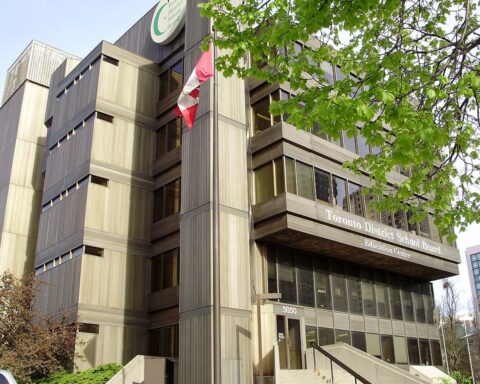With the federal election approaching, it seems a fitting time to gauge the pulse of the Canadian public to find out where it stands on issues of immigration and multiculturalism. It’s also an opportune time to take note of the challenges members of specific ethno-cultural groups – often invisible in mainstream discussion – face on a day-to-day basis. In this edition of Research Watch, we examine emerging research that offers insight into both these areas.
Public opinion on multiculturalism: not as bad as you might think
The Canadian public’s opinion on multiculturalism and immigration has changed remarkably little over the last three to five years – it remains relatively positive. This is according to the Environics Institute’s recently released report, which aims to update the organization’s ongoing research on topics of immigration and multiculturalism dating back to the 1970s.
This overarching highlight of the report is particularly notable, says Environics executive director Keith Neuman, because recent commentaries in the media and public discourse regarding things like concern of domestic terrorism, citizenship and immigration policy reform, and international refugee issues may suggest otherwise.
“It would not be surprising to find that perhaps Canadians are becoming more weary of immigrants, people coming with different cultures – but we didn’t find that.”
[W]hile there is a tendency to think that Quebec residents are the least tolerant of immigration and multiculturalism, there were some areas in the study that proved otherwise.
What was also particularly interesting, Neuman adds, is that while there is a tendency to think that Quebec residents are the least tolerant of immigration and multiculturalism, there were some areas in the study that proved otherwise.
For example, 68 per cent of Quebec residents surveyed expressed increased concern about the treatment of Muslim people – the highest percentage across all regions surveyed.
“This tells us that we should be careful not to peg Quebecers as the most anti-immigrant [or anti-multicultural] part of the country,” Neuman says.
The study put forth a range of statements such as “Overall, immigration has a positive impact on the economy,” or “There are too many immigrants coming into this country who are not adopting Canadian values” and then compared the national responses in 2015 from those over the last 30 years. The results were analyzed based on respondents’ province of residence, age, socio-economic profile and political-party allegiance.
Neuman points out that while the findings based on political party are in line with previous research – indicating supporters of the New Democratic Party are the most positive about immigration and multiculturalism and those of the Conservatives the least – the gap is gradually narrowing.
“In some of the key questions, some who support the Conservatives become more positive about immigration and multiculturalism,” he explains. “The difference has been diminishing, not growing larger.”
Acknowledging complexity in racial identity
What it means to be Somali, Canadian, Muslim, Black, and in many instances all of those is a large part of the identity crisis faced by Somali-Canadians – both immigrants and non – states the first half of “The 360 Project: Addressing Racism in Toronto” report released last week by the Urban Alliance on Race Relations and Ryerson University’s Diversity Institute.
“The Somali Canadian is being profiled on two levels, race and religion, and after September 11, the Somali has been profiled more so on Islamophobia. These are the layers … we are newcomers, refugees, Black and Muslim.”
“It’s a discussion that one has of ‘who am I?’” explains Mohamed Elmi, research assistant at the Diversity Institute and a member of the team who put together the final report, which was based on a one-year study.
Raised in New Brunswick and having lived in Halifax, Ottawa and Toronto, Elmi says the discussion of identity has resonated with him no matter where in Canada he went. “[It’s] the idea that in different spaces I’m Somali and in public spaces I’m Canadian.”
His sentiment is echoed throughout the report’s segment titled “Addressing the Discrimination Experienced by Somali Canadians in Toronto,” which combines the voices of 15 focus-group participants with various academic literature to address key issues affecting the community in relation to racial identity, education, housing, justice, employment and health.
“Everyone is Black in Africa,” says one participant. “You come here [to Toronto], you are identified as Black, and with that you are put into a box that is very confusing … Parents don’t know what Black is, however, the young people know that there is a Black experience.”
Another participant speaks to the multiple dimensions of discrimination members of the community face. “The Somali Canadian is being profiled on two levels, race and religion, and after September 11, the Somali has been profiled more so on Islamophobia. These are the layers … we are newcomers, refugees, Black and Muslim.”
[S]ystemic change needs to come from an understanding that lumping people together based on wide-sweeping categories such as “racialized” or “visible minorities” isn’t effective when creating community programs and services.
More than anything, Elmi says the report, which details challenges experienced by the Somali Canadian community such as the cycle of poverty and racial profiling by police, sets out to “give voice” to a marginalized community.
“It was a conversation about race, a conversation about identity, a conversation about community,” he explains. While it doesn’t make any conclusive policy recommendations, he adds, what it is calling for is “the need to move for systemic change.”
Wendy Cukier, founder of the Diversity Institute and one of the lead authors of the report, says that part of that systemic change needs to come from an understanding that lumping people together based on wide-sweeping categories such as “racialized” or “visible minorities” isn’t effective when creating community programs and services. It’s important to consider the intersection of many complex challenges often experienced by marginalized communities, she says.
“There are other issues that have a huge impact on the experience of people in that broad category,” she says. “We know, for example, that within that broad category, different ethnic groups experience different levels of discrimination.”
The second portion of the report focuses on the discrimination experienced by racialized LGBTQ (Lesbian, Gay, Bi-Sexual, Transgender, Queer) youth who are homeless in the Greater Toronto Area, particularly in terms of challenges with the police, feelings of isolation and a lack of culturally appropriate services.





